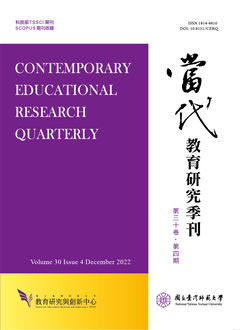

高等教育日益普及化,雇主無法僅以教育程度做為判斷求職者的能力,證照成為衡量求職者能力的客觀指標。本研究旨在探討大學畢業生取得證照及其薪資所得之關聯。目前國內皆利用迴歸分析法探討證照對薪資所得效益,此方法論有基準線的差異以及個體自我選擇的偏誤。因此本研究應用傾向分數配對法(Propensity Score Matching, PSM)估算平均處理效果(Average Treatment Effect on the Treated, ATT),分析臺灣的大學畢業生擁有證照對薪資所得的效應。以臺灣高等教育資料庫2004 年的調查,即2002 年大學生畢業後一年問卷資料,有效樣本數共計4,979 人。本研究發現:(1)擁有證照與無證照的大學畢業生,其影響薪資所得之個體基準條件具有差異性;(2)當控制了影響薪資所得的個體基準線差異性之後,證照對於薪資所得的提昇僅微小的影響;(3)同時,證照張數對於薪資所得累積效果影響有限。文末,根據研究結果進行討論與建議。
With the increasing popularity of higher education, it is difficult for employers to quickly identify qualified candidates by their educational backgrounds only. Thus, certifications have become an objective measurement of a candidate’s ability. This study aimed to investigate the relationship between certifications and wages obtained by university graduates. The extant research has explored the influence of certifications on wages by using the regression analysis method. This method may have baseline differences and self-selection bias. In contrast, the present study applied Propensity Score Matching (PSM) toestimate the Average Treatment Effect on the Treated (ATT), and analyzed the effects of obtaining certifications on wages for Taiwanese university graduates. The relevant data were collected from the 2004 Taiwan Higher Education Database with an effective sample size of 4,979 participants. The results indicated the following: (1) There is a significant difference between the effects of individual baselines on wages for university graduates with or without certifications. (2) Whilecontrolling the difference in the effects of individual baselines on wages, certification has a small impact on average wages. (3) The number of certifications also has a small accumulative effect on wages. Finally, practical suggestions are discussed based on these research results.

本著作係採用創用 CC 姓名標示-非商業性 3.0 台灣 授權條款授權.
本刊國立台灣師範大學教育研究與創新中心
106台北市和平東路一段162號 | 電話: 02-7749-3670 | E-mail: cerecerq@gmail.com
教創中心 | 師大 | 電子報 | 線上投審系統
本刊由國家科學及技術委員會人文社會科學研究中心補助經費
© 2014 CERI-NTNU
